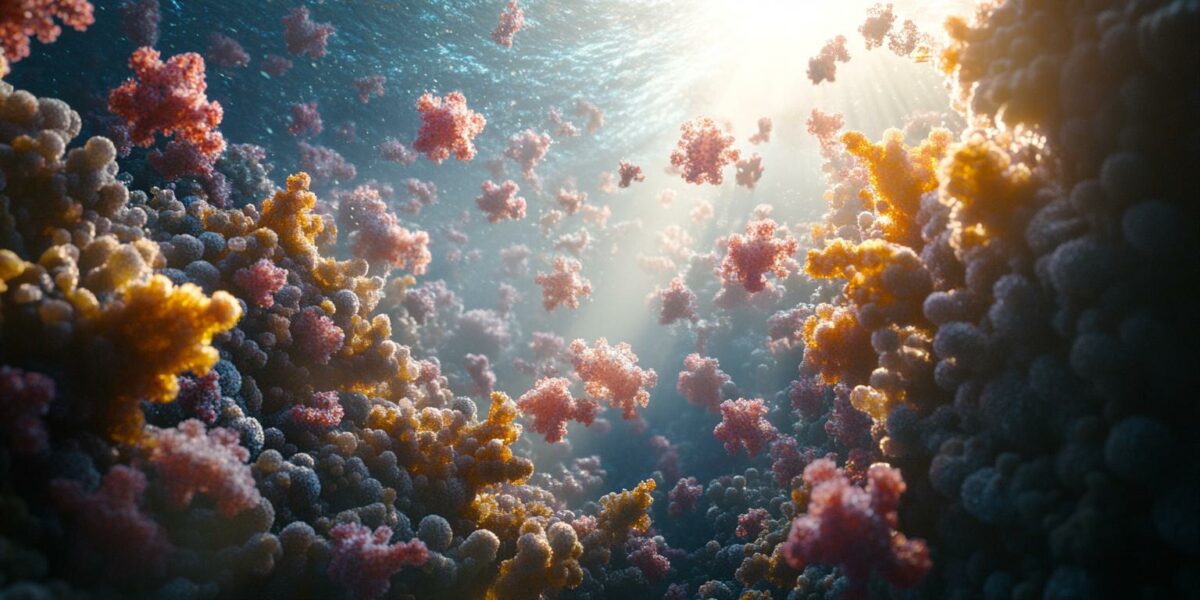The Hidden Power of Prokaryotes
The vast oceans conceal an invisible world teeming with microscopic life. These tiny organisms, known as prokaryotes, make up a staggering 30% of marine life. Their resilience to climate change poses a significant threat to the delicate balance of marine ecosystems.
Research indicates that prokaryotes could increasingly dominate the seas, disrupting fisheries and carbon absorption. This shift could drastically reduce the supply of fish critical for human consumption and impede the ocean’s role in mitigating climate change.
Prokaryotes, encompassing both bacteria and archaea, are some of the oldest life forms on Earth. They thrive in diverse environments, from tropical waters to polar ice, highlighting their incredible adaptability.
Despite their microscopic size, the sheer abundance of prokaryotes means they play a crucial role in oceanic food webs, supporting the nutrient needs of fish and other marine creatures.
Consequences of Climate Change
Through sophisticated computer models, scientists predicted the impact of climate change on marine prokaryotes. The findings are alarming: prokaryotes are poised to be the climate change winners in marine ecosystems.
For each degree of ocean warming, the biomass of prokaryotes will decline by about 1.5%, significantly less than the 3-5% decline projected for larger marine life. This shift means that future oceans will be increasingly dominated by prokaryotes.
As prokaryotes gain dominance, they will divert more nutrients and energy away from fish, potentially reducing fish populations that humans rely on for food. This shift could have a profound impact on global food security.
Moreover, with every degree of warming, prokaryotes are expected to produce an additional 800 million tonnes of carbon annually, equivalent to the current emissions of the entire European Union.
Impacts on Global Marine Life
Human-induced climate change is projected to warm the oceans by up to 3°C by the century’s end. This warming could significantly increase the carbon output of prokaryotes, undermining the oceans’ ability to absorb human emissions.
Current models predicting declines in global fish stocks may be underestimating the impact of warming on marine food webs. These models often overlook how climate change reshapes ecosystems, favoring prokaryotes over larger marine life.
Given that about 3 billion people depend on the oceans for protein, declining fish populations could pose a severe threat to global food supply. The potential for decreased fish stocks underscores the urgency of addressing climate change.
Future marine ecosystems will likely have lower overall biomass, with prokaryotes increasingly dominating. This shift could further exacerbate the challenges of achieving global net-zero emissions.
Call to Action
The evolving role of marine prokaryotes in a changing climate demands further research. Our current understanding is based on existing observations, but climate change is altering marine ecosystems in ways that models may not fully capture.
Key uncertainties remain, including how quickly prokaryotes can adapt to new environments. Studies show that bacteria can develop new traits within weeks, suggesting a rapid adaptation potential.
Scientists must enhance their understanding of prokaryotes and their responses to climate change. This knowledge is crucial for predicting future impacts and developing strategies to mitigate negative outcomes.
Continued research and improved models are essential to grasp the full extent of prokaryotes’ role in marine ecosystems and their influence on global climate dynamics.



oreozen
Is there a way to use this knowledge to help combat climate change?
joseph
I had no idea prokaryotes were such a big part of marine life. Thanks for sharing!
RoseTitan
So are we basically doomed to have less fish and more carbon in the oceans? This is depressing.
Hunter
This is mind-blowing! Are there any positive effects of prokaryotes dominating the oceans?
stellaessence
Great read! But isn’t there anything we can do to control these ancient microbes?
lillianamethyst
If prokaryotes are so adaptable, why haven’t we noticed their impact sooner? 🤔
willow
Thank you for this eye-opening article! Never thought microbes could be such a big deal. 😊
Haley
Wow, this is really worrying. How can we mitigate the effects of these prokaryotes on fish stocks?